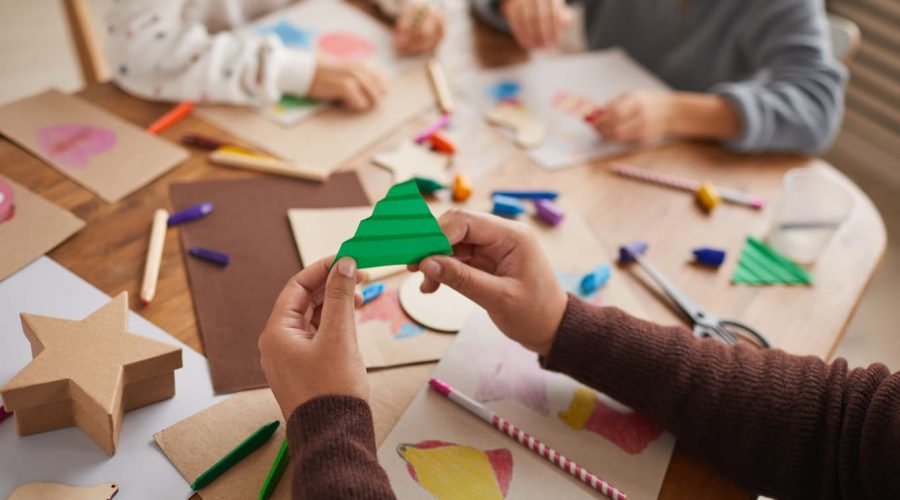
Description
Research has shown that learning through arts boosts a child’s self-esteem, self-image and confidence. It leads to increased academic performance (in both verbal and mathematical assessments) and gives students the ability to express themselves, improve their communication skills, think creatively and inventively.
The diverse forms of art play a crucial role in providing a well-rounded education that fosters the complete development of an individual. In today’s context, the skills, values, and behaviors advocated by arts education hold greater significance than ever before. These skills, including creativity, collaboration, and innovative problem-solving, not only build resilience but also foster an appreciation for cultural diversity and freedom of expression. Moreover, they contribute to the cultivation of skills in innovation and critical thinking.
This course is designed to equip educators with the knowledge and skills to integrate the arts seamlessly into various subjects, fostering holistic development in students.
Explore how arts education contributes to creating a positive and empowering learning environment. Learn how to apply arts based learning to different subjects, while building effective lesson plans. Art instruction helps children with the development of motor skills, language skills, social skills, decision-making, risk-taking, and inventiveness.
By the end of the course participants will have learned how to incorporate comprehensive education for the full development of the individual, cultivate innovation and support social and emotional development of their students. If you wish to build empathy, reduce intolerance, and generates acceptance of others, develop valuable life and career skills among your students, this is the course to take.
Check out this course on European School Education Platform a meeting point for the school education community:
https://school-education.ec.europa.eu/en/professional-development/courses/arts-education-developing-creativity-inclusive-classroom
Learning outcomes
By the end of the course the participants will:
- acquire skills and techniques to modernize classroom dynamics, fostering an engaging and contemporary learning environment using Arts
- understand and articulate the positive impact of drama-based activities on a child’s development in the classroom
- gain strategies for building students’ confidence, fostering creativity, and enhancing verbal and non-verbal communication skills
- earn techniques to encourage teamwork and collaboration through drama-based activities
- will explore ways to integrate music in the learning process
- explore a variety of digital tools and resources for effectively incorporating technology into arts education
- enhance their understanding of visual arts development, with a specific focus on graphic design
- be equipped with the skills to research, plan, execute, and evaluate project-based learning experience
- encourage students to think outside the box and unleash their imagination through gamification and drama-based games.
Tentative schedule
Day 1 – Introduction to the course
- Welcome event; presenting participants, their schools, cities, countries
- Presenting host organization and the city
- Getting to know each other: Icebreakers
- Introduction to the course
Guided walking tour of the city of Split
Day 2 – New active learning paradigm
- Reinventing the classroom experience: Skills and techniques for modern educators
- Stimulate your creativity in Arts, flip your perspective, think outside the box
- Learn to capture your students’ attention with storytelling
Guided walking tour (available for all courses)
Day 3 – Encouraging a holistic learning approach with drama-based activities
- Benefits of drama-based activities in the classroom for child’s development
- Building confidence, developing creativity, improving verbal and non-verbal communication skills
- Encouraging teamwork and collaboration
- Sparking students’ imagination and creativity with music
Day 4 – Exploring Technology in Arts Education
- Explore digital tools and resources for incorporating technology into arts education
- Visual arts development, Graphic design
- Setting up a stop motion studio in the classroom
Day 5 – Videography, an artistic approach to Project-based Learning
- Presenting PBL: research, planning, execution, and evaluation
- Student-centred concept, active work on real world project
- Focus on problem-solving, critical thinking, collaboration and communication
- Teaching leadership, time management and creativity
Day 6 – Gamification and drama-based games
- Interactive, fun gamified activities that require students to work together, fostering a sense of cooperation
- Understanding different perspectives and emotions
- Improv theatre: Challenging students to think on their feet and find creative solutions
Day 7 – Course revision and evaluation
- Reflecting on the course and what we have learned from the past week
- Course evaluation
- Erasmus+ Certificate award ceremony
Specifics
Request Info
Questions before you register?
We'll answer anything about the course or practical details.
"*" indicates required fields